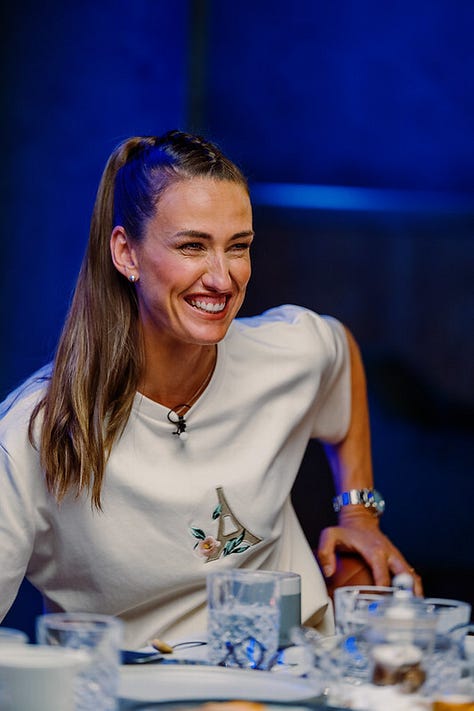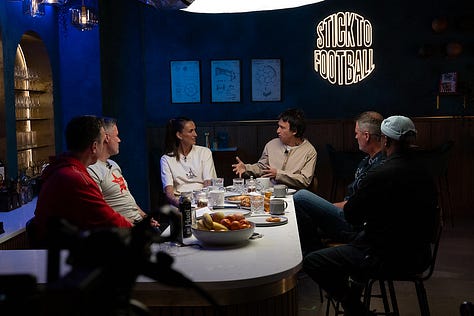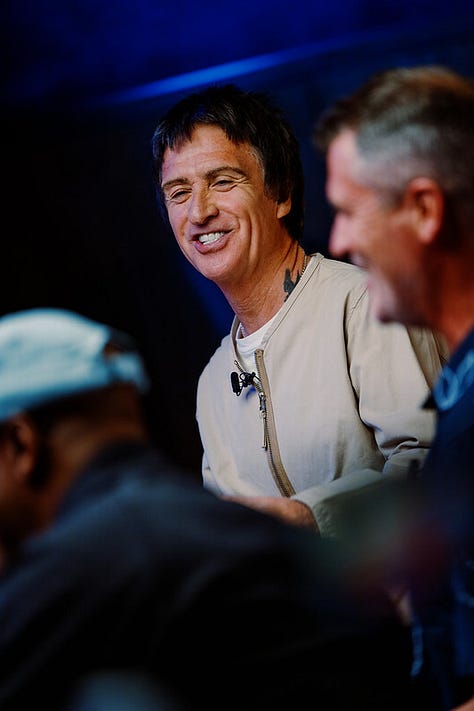England’s Euro 2025 Challenge Begins: Can Wiegman's Lionesses Roar again?
With questions circling around form, tactics, and squad depth, England's Euro 2025 title defence begins under pressure. But is that a privilege?
Welcome back to The Overlap Newsletter. Both English teams booked their way into the Club World Cup knock-out stages, with Chelsea set to face Portuguese outfit Benfica on Saturday evening whilst Manchester City play Al-Hilal in the early hours of Tuesday morning (BST).
The Women’s European Championships also gets underway on the 2nd July, as Sarina Wiegman’s England side hope to defend their crown in Switzerland. The Lionesses sit in a tough group alongside Netherlands, France and debutants Wales and begin their quest against France on Saturday 5th July.
Who will win the Euro’s? Let us know in the comments section:
This week on Stick to Football we brought the best of Season 2 as well as an exclusive Behind the Scenes episode on how we make our award winning show. Catch up on our latest episodes of Stick to Football on The Overlap Youtube Channel:
Over on It Was What It Was, Jonathan Wilson and Rob Draper bring a two-part special into the downfall of Diego Maradona; an unmissable listen on the latter parts of one of the greatest players of all time.
On The Breakdown, we give an insightful tactical outlook into how Arsenal’s number one summer transfer target Benjamin Sesko could fire them to the Premier League title for the first time since 2004 having come runners up in the past three seasons.
Quiz Question:
Who were the joint top scorers at the last Women’s European championship held in 2022?
Stick To Football Behind The Scenes: Johnny Marr









WIEGMAN QUESTIONED, LIONESSES UNDER PRESSURE: IT'S ALL GOOD FOR ENGLAND
By Rob Draper
Sometimes it’s hard to remember that afternoon when England last won a trophy. Not that glorious July day 59 years ago. Not many of us were around for that so we can be forgiven for not recalling it. No, it’s England’s last trophy that suddenly feels an awful long way back in the past.
It is only three years since Chloe Kelly launched a wild miskick at a bouncing ball before stabbing home the rebound to create history and set off on her own iconic shirtless celebration to complete the best day England has had since 1966 by winning Euro 2022.
But in the run up to Sunday’s Euro 2025 send-off game against Jamaica, overshadowed by the retirements of Fran Kirby and Mary Earps and Millie Bright’s decision to make herself unavailable for selection, the euphoria of 2022 feels a little like ancient history. And with an initial group of France, Netherlands and Wales in Switzerland, the Lionesses will need to be as united as ever just to ensure they have the chance to defend their title in the latter stages.
Looking through the narrow lens of just how well prepared England are for Euro 2025 - Is the midfield light? Do they now lack experience? Are they 100 percent behind the manager?- you would have to say the jury remains out on whether Sarina Wiegman’s brand of “I don't go around the bush” straight-talking management is still effective.
Yet pull the camera back and view from a broader perspective and you might say the pressure and chatter around the Lionesses falls into the “nice problem to have” category. The one thing worse than relentless media scrutiny is being ignored. And that certainly won’t be the case this month. If England fail, there will inevitably be scrutiny of Wiegman and questions as to whether her cycle is coming to an end.
July 31st, 2022 will always go down as a great day in English football history. There was resonance in the date. England won the men’s World Cup on July 30th. And the women’s Euro triumph came 101 years after the FA Council stated that “the game of football is quite unsuitable for females and ought not to be encouraged [and] the council requests clubs belonging to the Football Association to refuse the use of their grounds for such matches.”
It was of course only a year before in 1920 that 53,000 fans had turned up to watch Dick, Kerr Ladies play St Helen’s Ladies at Goodison Park, with a reported 14,000 fans locked out. There was a mania for women’s football, which the FA stamped out, probably because the male clubs were launching their own new competition, Third Division North and South, which would eventually become the Football League or EFL and saw the huge interest in the women’s game as competition.
As Phil Neville, the former Lionesses manager says: “People don’t know that or realise the extent to which female footballers were suppressed. The FA banned them for 50 years. That’s 50 years of development, visibility, learning and generations of footballers that were missed. I wonder if that [momentum of the Dick, Kerr Ladies game] had continued whether the women’s game would have been equal to the men’s game now.”
Without the support of The FA and denied access to club grounds, the inaugural English Ladies FA Cup, won by Stoke Ladies in 1922, faded away and failed to be played the following year. Talk of a ladies’ league amounted to nothing, Dick Kerr Ladies went on playing until the mid 1960s but only in friendly matches, It wasn’t until 1969 that a Women’s Football Association was formed and the following year that the FA lifted their 49-year ban. An unofficial England team took part in an unsanctioned World Cup in 1971 which drew crowds of 112,500 to the final between Mexico and Denmark at the Azteca Stadium. Just as in 1920, the excitement and interest in the women’s game was huge.
Yet back home in England those players would still be treated like second-class citizens. Sue Lopez, a member of Southampton Women’s FC, winner of the first WFA Cup in 1971, recalled that “we used to play on Southampton Common and it had a pub called The Cowherds. That tells you what it was like. People’s cattle did probably [once] feed on this ground and the football pitches were rough, with no nets. We used to play on pitches like that most of the time.” They received no help from Southampton FC at that time. It was only in 1993 that The FA finally brought the WFA into its organisation and in 1994 that the Women’s National League, the forerunner of the WSL, was formed. It was only under Phil Neville’s tenure that the national team stopped flying EasyJet and either went business class or private charter, as the men’s team, including the Under 21s, do.
At some stage a future generation will stop writing about the ban and the struggle because it will cease to be relevant. They will be women’s football natives, kids who never knew a world in which the female game wasn’t taken seriously. And yet for those of us old enough to remember the 1970s, it’s actually quite joyous to watch an England team going into a tournament under pressure to perform, their team unity the subject of vivid headlines and the manager's methods questioned. Oh, and they happen to be women. This is where we’re at. And it feels good.
Quiz Answer:
Beth Mead and Alexandra Popp.



